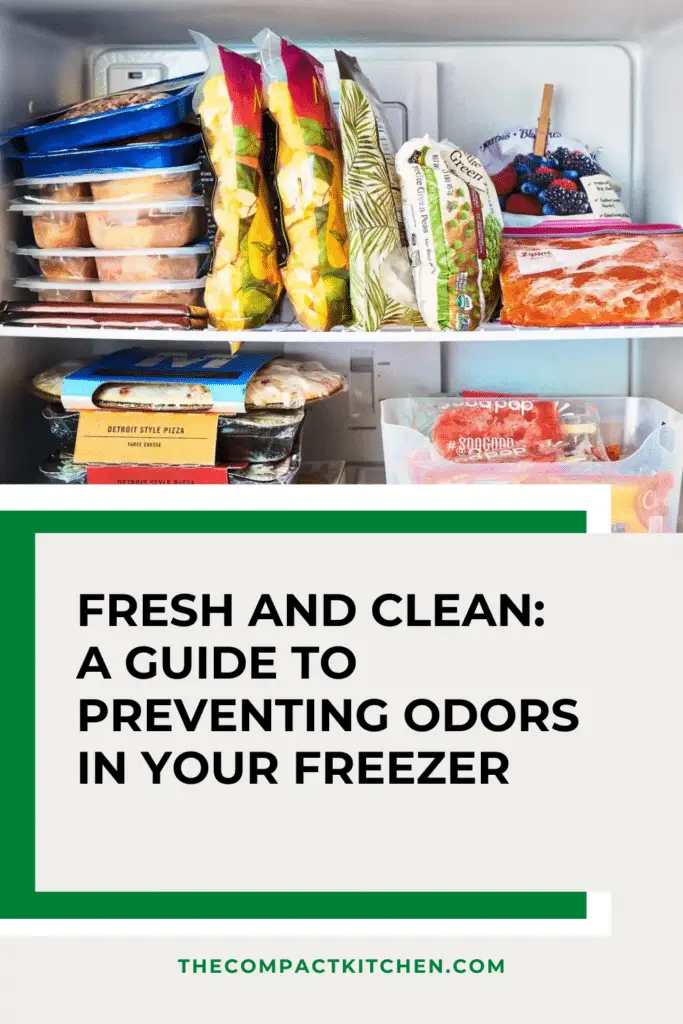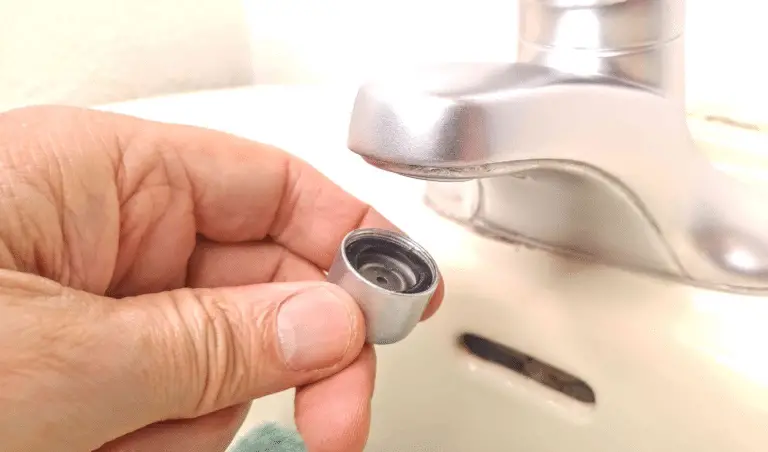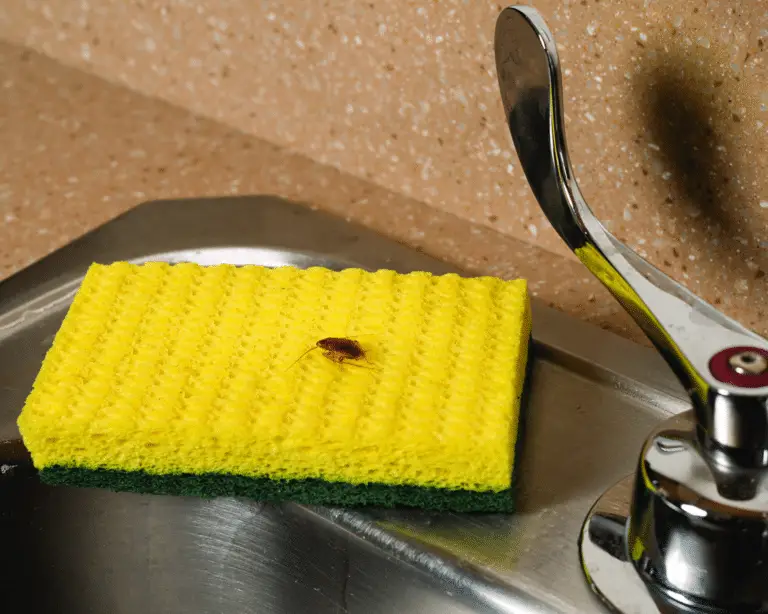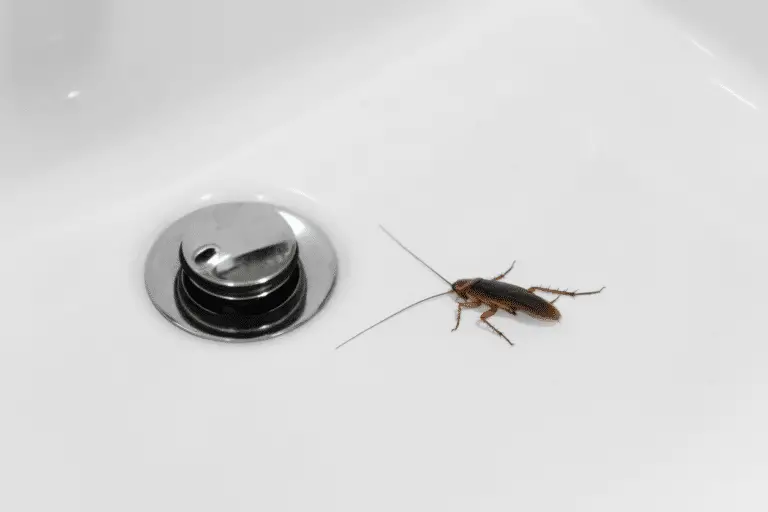Are funky smells taking over your freezer? Understanding the causes of freezer odors is key to keeping your frozen goods fresh. From regular cleaning tips to proper food storage techniques, this blog post dives into everything you need to know about preventing odors in your freezer.
Learn about the role temperature and ventilation play, as well as when it’s time to call in the professionals. Say goodbye to stinky freezers for good! #PreventingOdorsInFreezers

Understanding the Causes of Freezer Odors
Have you ever opened your freezer only to be hit with a wave of unpleasant odors? Understanding the causes of freezer odors is essential in preventing them from becoming a regular occurrence in your home.

One of the most common sources of freezer odors is spoiled food. Whether it’s forgotten leftovers or expired products, these items can quickly turn into a breeding ground for funky smells. Additionally, leaving containers open or not sealing food properly can lead to odors spreading throughout the freezer. Poor ventilation is another culprit, as lack of airflow can trap odors inside and create an unpleasant environment.
By knowing these causes, you can take proactive steps to prevent and address them before they become a bigger problem. Regularly inspecting your freezer for spoiled items, ensuring all containers are tightly sealed, and maintaining proper ventilation can go a long way in keeping odors at bay.
Key Takeaways:
- Spoiled food, open containers, and poor ventilation are common sources of freezer odors.
- Understanding these causes is crucial for effective prevention and maintenance.
Regular Cleaning and Maintenance
When it comes to preventing odors in your freezer, regular cleaning and maintenance are key. Neglecting your freezer can lead to a buildup of unpleasant smells that can transfer to your food and leave you with an unappetizing situation. By incorporating simple cleaning habits into your routine, you can ensure that your freezer remains fresh and odor-free.
Stress the need for regular cleaning:

It’s easy to forget about cleaning your freezer when you’re busy with daily life, but taking the time to do so can save you from dealing with foul odors down the line. Set a schedule for cleaning your freezer, whether it’s monthly or quarterly, to ensure that you stay on top of maintenance. Remove all items from the freezer, defrost if necessary, and thoroughly clean all surfaces with a solution of water and mild detergent. Don’t forget to pay attention to often-overlooked areas like the seals and corners of the freezer.
Use lesser-known cleaning methods:

Baking soda and vinegar are two powerful tools in the fight against freezer odors. Baking soda can absorb odors and help neutralize them, while vinegar’s acidity can break down stubborn residue. Place an open box of baking soda in your freezer to help absorb lingering smells, and wipe down surfaces with a solution of water and vinegar for a deep clean. These natural cleaning agents are safe, effective, and budget-friendly options to keep your freezer fresh.
By incorporating regular cleaning and maintenance practices, along with utilizing natural cleaning methods like baking soda and vinegar, you can easily prevent odors in your freezer and keep your food smelling and tasting its best.
Proper Food Storage in Freezers
When it comes to preventing odors in freezers, proper food storage is key. No matter how often you clean or maintain your freezer, if you’re not storing your food correctly, you’ll still be left with unwanted odors. Let’s dive into some important tips and recommendations for effective food storage in freezers.
The Importance of Sealing Foods Properly

One of the main culprits of freezer odors is improperly sealed food. When food is not sealed correctly, odors can easily spread to other items in the freezer. To prevent this from happening, make sure to use airtight containers or wraps for your food before storing them in the freezer. This not only helps in preventing odor transfer but also keeps your food fresh for a longer period.
Recommended Containers and Wraps
Choosing the right containers or wraps for different types of food can make a big difference in odor prevention. For liquids and soups, opt for leak-proof containers to avoid spills and odors. For meats and fish, double wrapping in plastic wrap before placing in a storage bag can help contain any potential odors. When it comes to fruits and vegetables, using freezer-safe bags or containers with good seals is crucial to keep them fresh and odor-free.

Investing in high-quality containers or wraps specifically designed for freezer storage is a wise choice. These containers are made to withstand the low temperatures of the freezer and provide an extra layer of protection against odors.
By following these food storage tips and recommendations, you can effectively prevent odors from developing in your freezer. Remember, proper food storage is just as important as cleaning and maintenance when it comes to keeping your freezer fresh and odor-free!
The Role of Temperature and Ventilation in Odor Prevention
When it comes to keeping your freezer odor-free, understanding the role of temperature and ventilation is crucial. By maintaining the right conditions within your freezer, you can prevent the formation of unpleasant odors that can impact the taste and quality of your stored food.
Temperature Matters

The temperature of your freezer plays a significant role in odor prevention. Freezers should ideally maintain a temperature of 0°F (-18°C) or lower to inhibit the growth of bacteria and mold that can cause odors. Make sure to regularly check the temperature using a thermometer to ensure it stays within the recommended range.
Optimal Ventilation is Key
Proper ventilation is essential for preventing odors in your freezer. Good airflow helps to maintain consistent temperatures throughout the freezer and prevents moisture buildup, which can lead to mold and mildew. Be sure not to overpack your freezer, as this can block airflow and create pockets of warm air where odors can develop.
Adjusting and Monitoring

To effectively prevent odors in your freezer, it’s important to regularly adjust and monitor both the temperature and ventilation. If you notice any fluctuations in temperature or signs of poor airflow, take immediate action to address these issues. Simple steps such as defrosting your freezer regularly and ensuring vents are unobstructed can make a big difference in odor prevention.
By understanding the impact of temperature and ventilation on odor formation, you can take proactive steps to keep your freezer smelling fresh and your food tasting delicious. Remember, maintaining optimal conditions in your freezer is the key to preventing unwanted odors from spoiling your culinary creations.
When to Seek Professional Help

While regular cleaning and proper food storage can help prevent most freezer odors, there are times when you may need to seek professional help to address deeper issues that cleaning alone can’t fix. Here are some signs that indicate it’s time to call in the experts:
1. Lingering Odors Despite Cleaning Efforts
If you’ve tried all the cleaning methods in the book and still can’t get rid of that funky smell in your freezer, it may be a sign of a more serious issue. Lingering odors could be caused by leaks, insulation problems, or even a malfunctioning component within the freezer itself.
When you’ve exhausted all your DIY efforts and the odor persists, it’s time to consult a professional who can identify and fix the root cause of the problem.
2. Spoiled Food Despite Proper Storage
Another red flag that should prompt you to seek professional help is if your food keeps spoiling prematurely despite your best efforts in proper food storage. This could be indicative of temperature inconsistencies within the freezer or a malfunctioning thermostat.
A professional can conduct a thorough inspection of your freezer to pinpoint the exact issue and provide a solution that will keep your food fresh and odor-free for longer.
3. Visible Damage or Malfunctions
If you notice any visible damage or malfunctions in your freezer, such as cracks, leaks, strange noises, or inconsistent temperatures, it’s crucial to get professional help right away. These issues not only contribute to odors but can also pose a safety risk.
A trained technician will be able to assess the damage, repair any faulty components, and ensure that your freezer is functioning optimally to prevent odors and keep your food safe.
4. Unusual Sounds or Smells
If you start hearing strange noises coming from your freezer or notice unusual odors that are not food-related, it’s a clear indication that something is amiss. These sounds and smells could be caused by mechanical issues or electrical problems that require expert attention.
Ignoring these warning signs can lead to more serious issues down the line, so it’s best to consult a professional as soon as you notice anything out of the ordinary.
Knowing when to seek professional help for your freezer odor issues can save you time, money, and frustration in the long run. By addressing underlying problems promptly, you can ensure that your freezer remains odor-free and your food stays fresh for longer.
Wrapping Up: Keeping Your Freezer Smelling Fresh!
In conclusion, understanding the causes of freezer odors, regular cleaning and maintenance, proper food storage, monitoring temperature and ventilation, and knowing when to seek professional help are key in preventing odors in freezers.
Remember, a little effort in prevention goes a long way in keeping your freezer odor-free. So, don’t cry over spilled milk – just clean it up! Keep your freezer fresh and happy with these simple tips.








